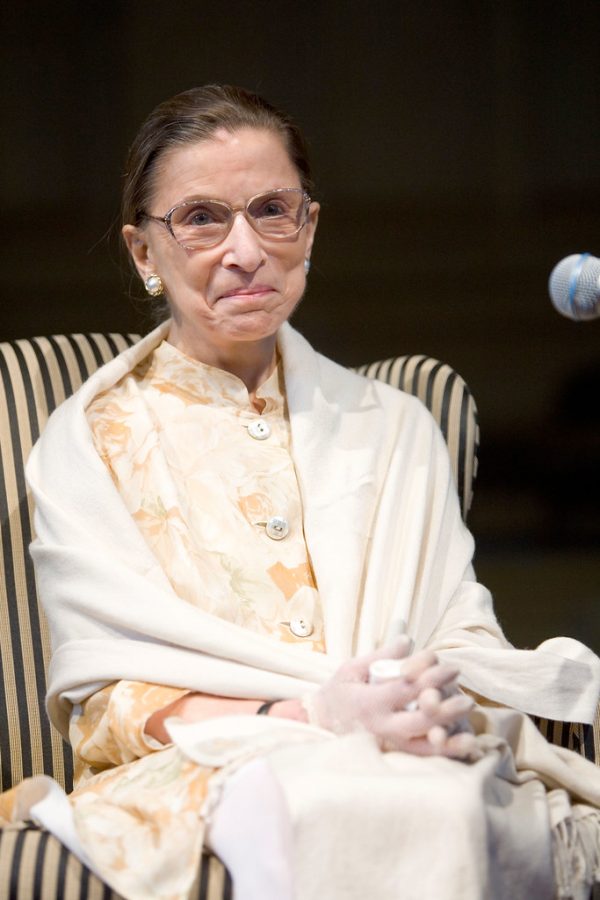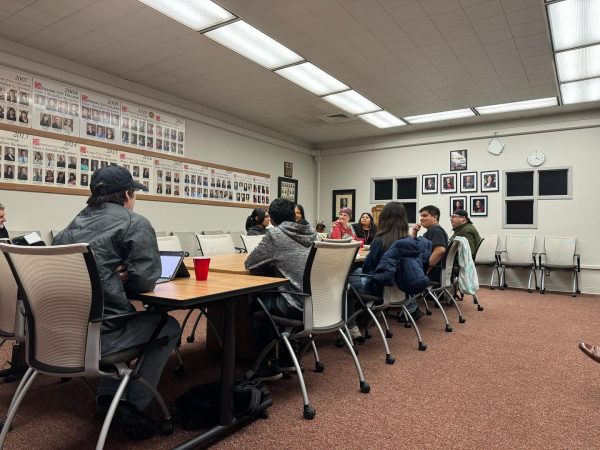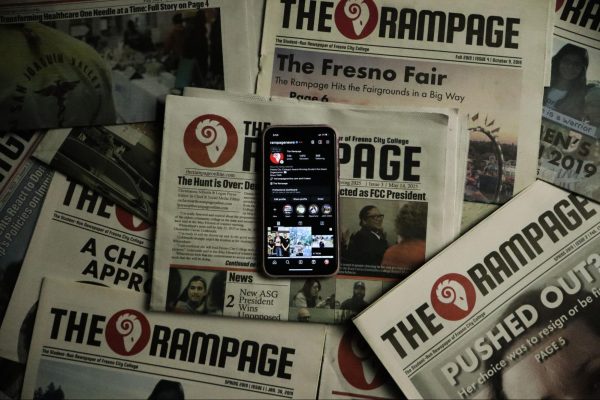In the Aftermath of Justice Ginsburg’s Death, the Political Circus Sets Its Eyes on the Supreme Court
Photo by: ©WFU/Ken Bennett
Ruth Bader Ginsburg, who died Friday, September 18, was a giant among progressive politics.
Since the beginning, Justice Ginsburg has been critical of Trump’s presidency, calling him a “faker” in an interview with CNN in 2016 and telling the New York Times, “I can’t imagine what this place would be — I can’t imagine what the country would be — with Donald Trump as our president,” the same year.
Up until as recently as July she vowed to continue working as long as she is able too, igniting hope in people fearful under a Trump administration.
That hope has gone dark.
Now, with less than 50 days from the November presidential elections, senate Republicans and the Trump administration, plan to appoint her replacement.
Just hours after word of Justice Ginsburg’s passing, Senate Majority leader Mitch McConnell announced that the Senate Floor will vote on whomever President Trump nominates to fill her seat.
The announcement comes in direct contrast to McConnell’s decision in 2016, when President Obama, after the sudden death of Justice Antonin Scalia, nominated Merrick Garland.
McConnell refused to hold hearings on the Senate Floor for Garland, claiming it was too close to a presidential election. Garland’s nomination was made eight months before the 2016 election.
Democrats claim Republicans are being hypocritical. Republican Senator Lindsey Graham told the Atlantic in 2018, “If an opening comes in the last year of President Trump’s term and the primary process has started, we’ll wait till the next election.”
Graham went as far as to say, “I want you to use my words against me. If there’s a Republican president in 2016 and a vacancy occurs in the last year of the first term, you can say Lindsey Graham said let’s let the next president, whoever it might be, make that nomination.”
But Graham, in a tough reelection year, has reversed on his statements. Saying he too will back a nomination made by President Trump.
Republicans claim the circumstances surrounding the nominations are different. The nomination of Garland was under a split government, a Democratic president and a Republican Senate. Now, the two branches are under control of the same party.
Democrats argue that may not be the case after November elections as 10 incumbent Republican senators face tough reelection.
For years, Congress has been enthralled in a game of cat and mouse. Each side demonizing the other, polarizing issues, and exhausting the American people as their pawns.
It could be said the last sanctuary of American government was held in the hands of the Supreme Court. Their aim for bipartisanism and professionalism has skirted the pettiness and controversy that’s plagued Congress, and now the Presidency, in recent years.
A Gallup Poll, conducted this year, revealed approval for the Supreme Court at the highest it’s been in 10 years. The approval ratings of each party also all falling within a few percentages of each other, in a rare show of political unity.
Now, the Supreme Court is a deer in the headlights, with Mitch McConnell behind the wheel.
McConnell has shown his ability to play politics at any level and at all cost—rushing a vote to fill Justice Ginsburg’s seat before battleground Republican Senators, in the midst of reelection, risk losing the majority in the Senate.
But for McConnell this is all part of a high stakes political game, whose origins long precede 2020.
The real sadness comes as this fiery display of divisive schoolyard antics overshadows the legacy of Ruth Bader Ginsburg and her regard for the Supreme Court.
Justice Ginsburg was a champion of equality.
Janet Benshoof, a former student of Ginsburg at Harvard Law School and an American Human Rights lawyer referred to her as, “the Thurgood Marshall of gender equality law.”
In the 1970s, as director of the American Civil Liberties Union’s (ACLU) Women’s Rights Project, Justice Ginsberg fought in a series of gender discrimination cases brought before the Supreme Court helping establish constitutional protection against the discrimination of sex.
She fought not by being the loudest, or the quickest, or even the most impassioned, but instead with pure intellect of law— standing against injustice and inequality
As a Supreme Court Justice, she fought to protect the needs of the individual, not any one political party’s ideology.
Chief Justice John G. Roberts, Jr. said in a statement, “Our Nation has lost a jurist of historic stature. We at the Supreme Court have lost a cherished colleague. Today we mourn, but with confidence that future generations will remember Ruth Bader Ginsburg as we knew her —a tireless and resolute champion of justice.”
In an America where the President has openly denied science, pushed conspiracy theories to mainstream, and incites division among Americans down party lines, or a congress who seems more concerned with the livelihood of corporations rather than the people the corporations rely on— Justice Ruth Bader Ginsburg reminded us that there are still good people in government.
People who truly take the needs of the people to heart.
We have lost sight of the true significance of this moment. The era of the people’s Supreme Court is over.
From now on, the political affiliations of nominees will be as obvious as their biases.
Opinions handed down by the Supreme Court will not reflect the opinions of the people but of the people in power.
The circus tent has been thrown over The Supreme Court.
Now all they need are the clowns.

David Richards, 28 years old, is an English Major at Fresno City College. Born in Fresno, David graduated from Buchanan High School in 2010. He is a returning...











